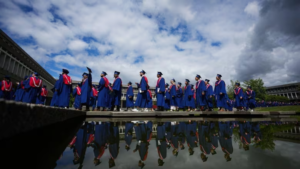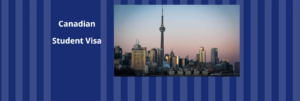
Family-class immigration applicants may encounter significant changes in their circumstances after submitting their application to Immigration, Refugees and Citizenship Canada (IRCC). For example, the sponsor’s financial situation might shift, or a new child may be born into the family. In such cases, IRCC has established specific procedures that sponsors and applicants must follow to report these changes after the initial application has been submitted.
Table of Contents
Adding a New Family Member to the Application
The procedure for adding a family member to an existing application varies based on their relationship to the sponsor.
Dependent Child of the Sponsor
Sponsors do not need to undergo another minimum necessary income (MNI) assessment to include an additional dependent child. However, they must remember to pay any new applicable fees, such as application processing fees, and ensure that the newly added family member passes any required medical and/or background checks.
Note: The MNI assesses whether a sponsor has sufficient funds to support the family members they are bringing to Canada.
Newborn Child
Family class applicants who have a newborn after receiving a permanent resident (PR) visa but before officially becoming a Canadian PR must follow different instructions. In this case, they can add their child to the sponsorship application once the applicable processing fee for the newborn is paid. Additionally, a medical examination for the newborn must be conducted as part of the application process.
Change in Principal Applicant
Changing the principal applicant on a sponsorship application is only allowed for applications involving a parent or grandparent, a dependent spouse, or a dependent common-law partner. While this situation is rare, it may occur if the principal applicant passes away after the application has been submitted. In such cases, IRCC allows the surviving spouse or partner to be processed as the new principal applicant, provided they qualify as a family class member in their own right, such as a parent or grandparent of the sponsor. Stepparents and/or step-grandparents of the sponsor may also be eligible for this change at IRCC’s discretion, based on humanitarian and compassionate grounds.
What Happens Next
If IRCC determines that the sponsor is eligible to change the principal applicant on their application, they will contact the sponsor to request an updated version of two forms:
- Application to Sponsor, Sponsorship Agreement and Undertaking [IMM1344]
- Generic Application Form for Canada [IMM0008]
No additional fees are required for this change in circumstances.
Change in Sponsor’s Circumstances
IRCC may pause the issuance of PR visas to family members on a sponsor’s application if they believe the sponsor’s ability to meet any sponsorship requirements needs reassessment. If new information suggests that the sponsor no longer meets the income test, IRCC will reevaluate the sponsor’s income. The sponsor will be permitted to submit additional documents or information to demonstrate that their new circumstances, such as financial changes, still enable them to act as a sponsor. Evidence regarding the sponsor’s income should cover the 12 months preceding the date the officer receives the new information and will be used to assess whether the change in circumstances is material to the visa decision.
IRCC clarifies that it will only issue permanent resident visas to family class members if a sponsorship undertaking remains in effect after the reassessment.
Changes in Relationship Status for Spouses, Common-law Partners, and Conjugal Partners
If applicants or sponsors change their relationship status while their application is being processed, they transition into a different family class relationship category. This includes changes such as moving from common-law partners to spouses after marriage. These applications do not necessarily require reassessment, but sponsors and applicants must inform IRCC of this status change before the application is finalized. This is essential for IRCC to verify that the relationship between the sponsor and applicant is genuine and meets Canada’s legal requirements.
FOR MORE INFORMATION CLICK ON : https://esseindiacomplaints.com/





